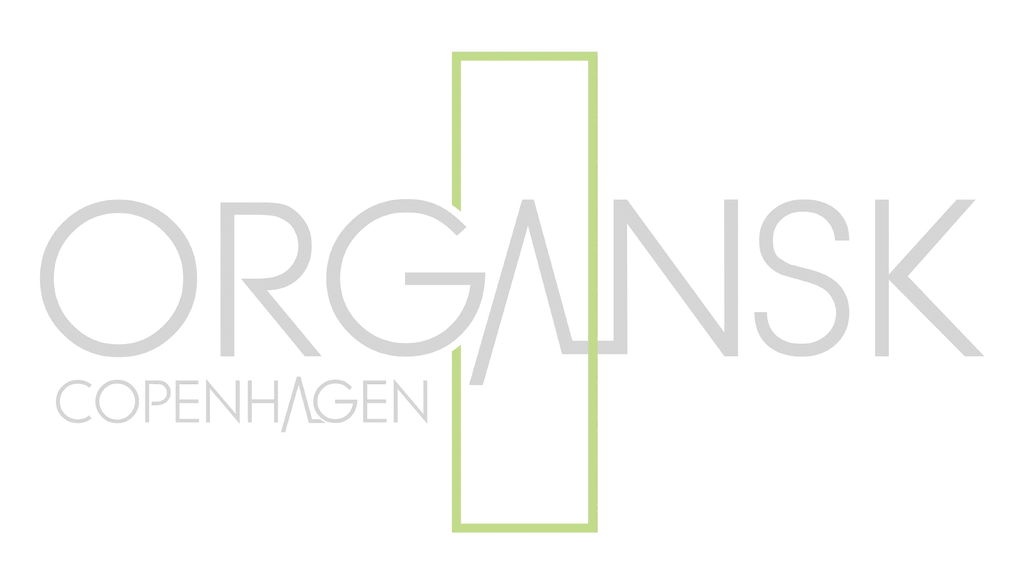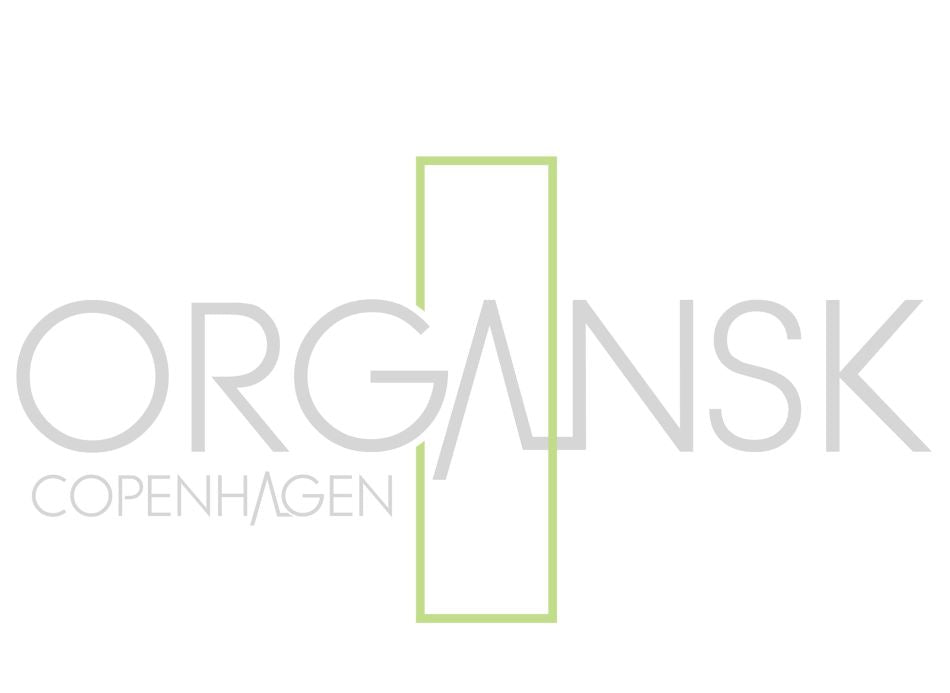100% CERTIFIED ORGANIC & NON-TOXIC
DESIGNED IN COPENHAGEN | FREE EXCHANGES
Creating a cleaner garment for you
↓
Sustainably sourced materials↓
Eco-conscious production↓
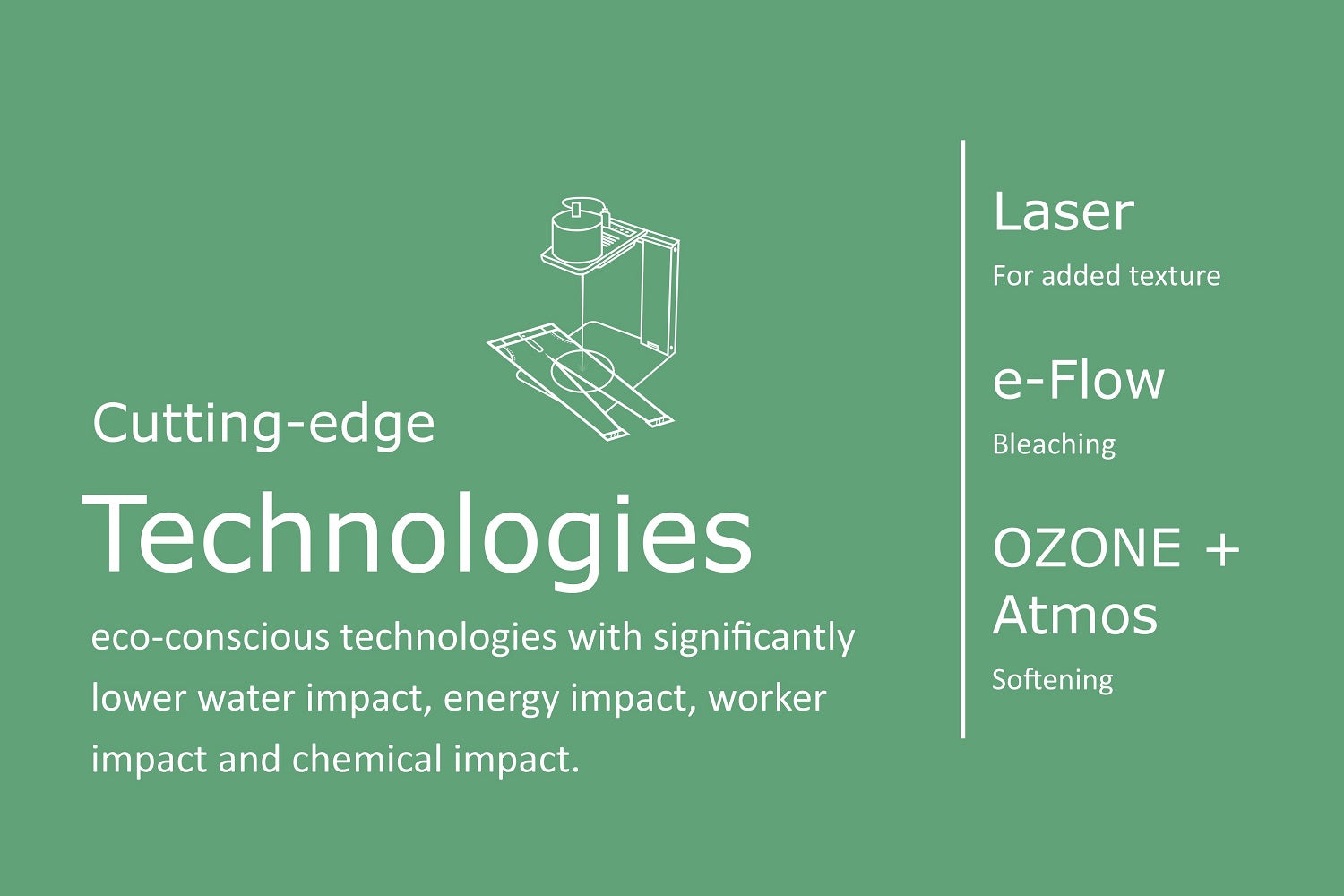
Our technologies
Leveraging state-of-the-art technologies for a better today and tomorrow
From intensive water use to chemicals in fabric processing, the fashion industry has an unsustainably large footprint on the planet. Rivers are dying, the soil is contaminated, and workers are becoming sick from the chemicals they are exposed to. Approx. 3kg chemicals are used to make 1 pair of jeans. Chemical residue is also found on customers’ jeans.
By using eco-conscious technologies, we eliminate the need for water-intensive washing and heavy applications.
Laser treatment uses heat to replace the chemical products typically used in the washing of denim, while Ozone, e-Flow and Atmos technologies offer high tech, low-impact laundry processes with significantly reduced water and chemical applications.
By using energy-efficient laser instead of chemicals for dyeing and bleaching, we save 100% on both water and chemical consumption at this stage of the post-treatment process, as laser requires neither water nor chemicals. This results in a savings of hundreds of litres of water per jeans, and dozens of potentially hazardous chemicals that pollute the environment – compared to conventional processes.
organsk® finishing process ↓
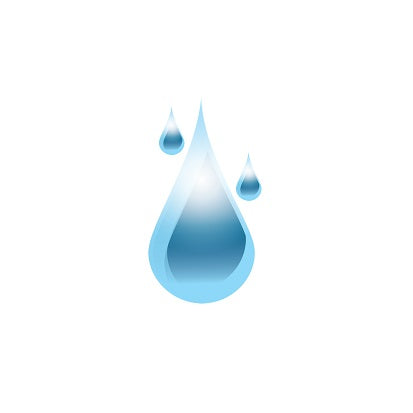
up to
Less water
than traditional processes
↓
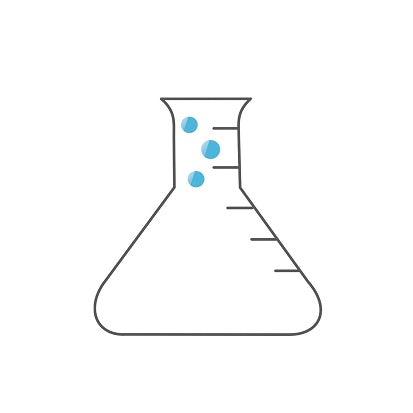
up to
Less chemicals
than traditional processes
↓

up to
Less energy
than traditional processes in finishing stage.
↓
Innovative and responsible
Jeanologia®
Cutting-edge development.
Jeanologia, based in Valencia, Spain, emphasizes ecology, efficiency and ethics. The company develops innovative technologies for textile industry and apparel through eco-efficient, and more sustainable solutions.
ORGANSK® uses Jeanologia laser and e-flow machinery for processing jeans, instead of traditional washing techniques.
Metod Makina
Washed with oxygen
Metod Makina is based in Istanbul, Turkey. We use their Metozone Ozone Application System for ageing and bleaching our jeans instead of traditional washing techniques.
No conventional techniques
We use no conventional treatments like sandblasting, whiskering or conventional washing processes for bleaching, ageing and softening, like stone wash, acid wash, pp spray etc. that are polluting our planet.
Our jeans are treated with eco-conscious technologies and digital programming: laser, ozone and atmospheric washes using less water, less energy and no pumice stones or harsh chemicals for color.
As a result, every pair of jeans is unique, and a slight color difference might occur when comparing two identical styles.
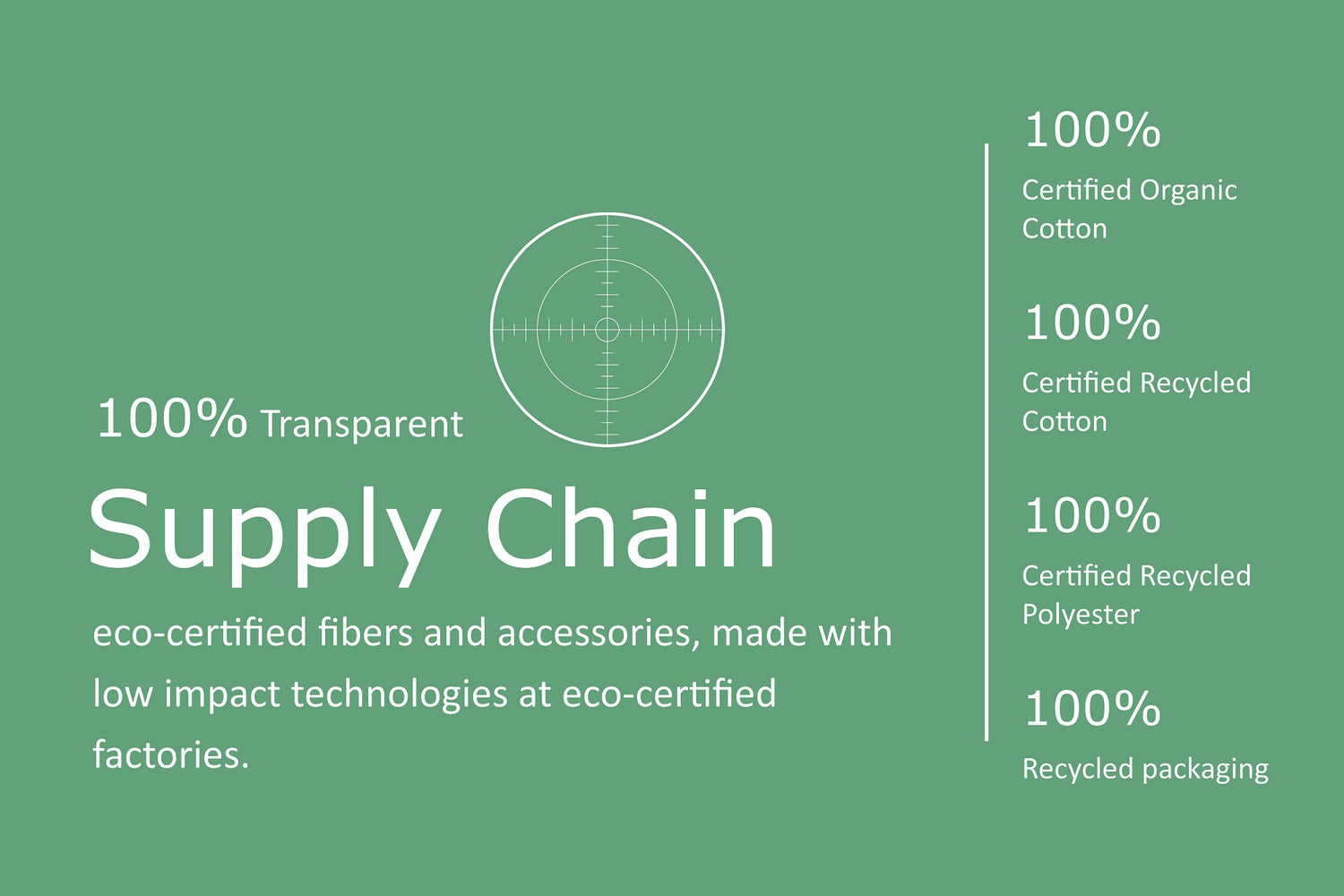
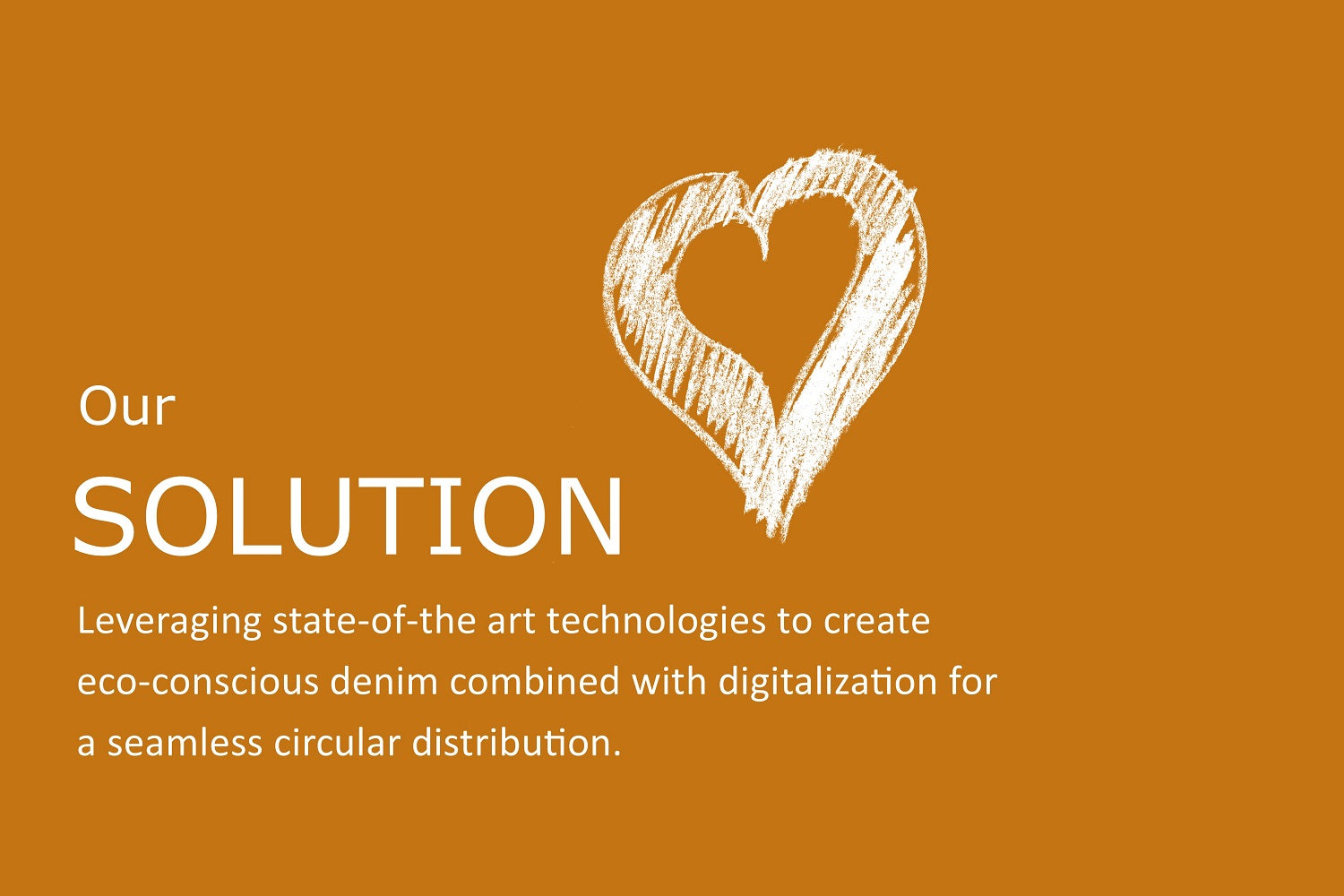
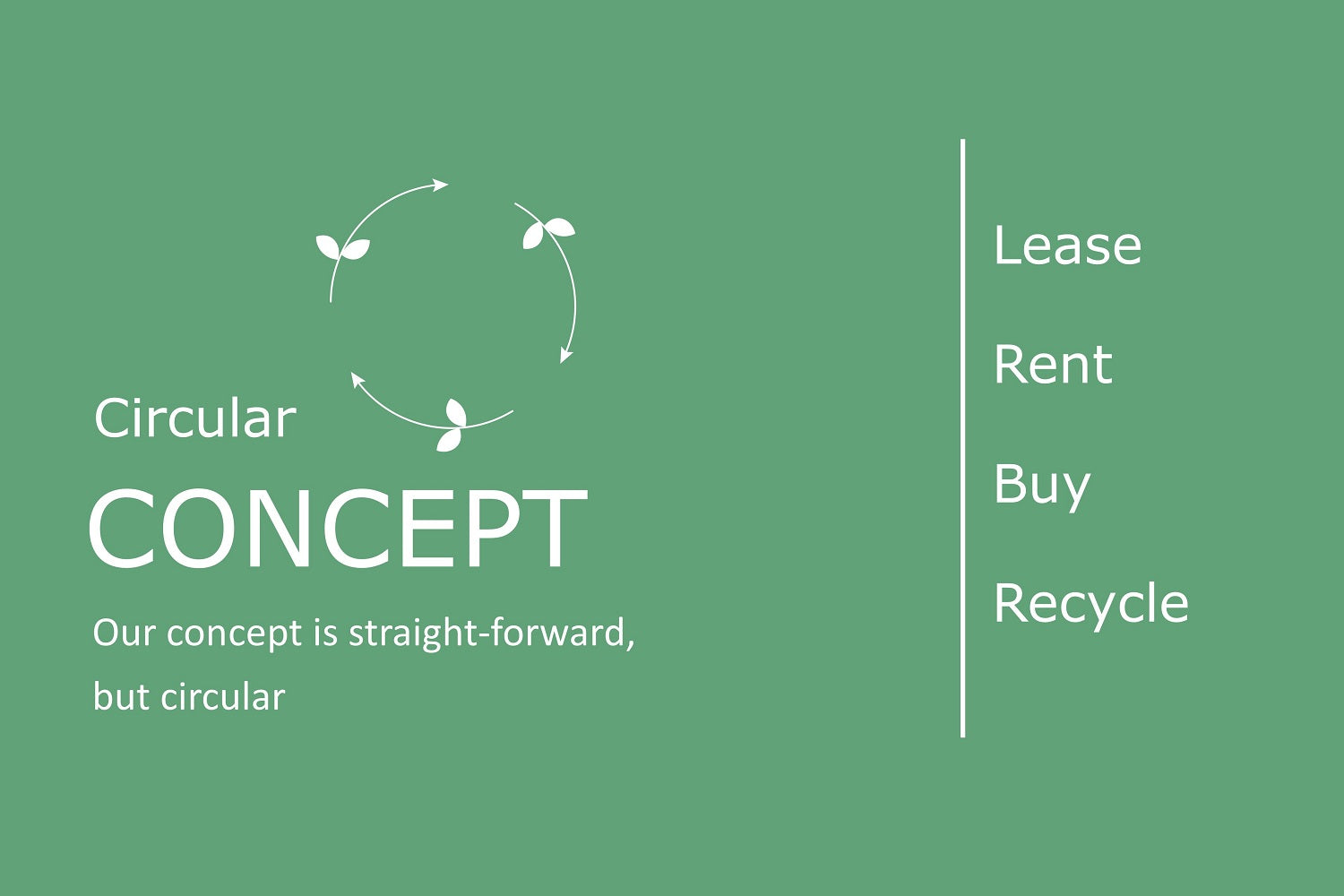
We believe in ''possible''
At ORGANSK, we are on a path towards sustainability, and we wholeheartedly commit to shorten that journey.
Contrary to conventional brands, our concept is built around sustainability initiatives. We don't use excuses, such as, sustainability is impossible and leave it at that.
✓ We look at technologies of today, and not promises of tomorrow.
